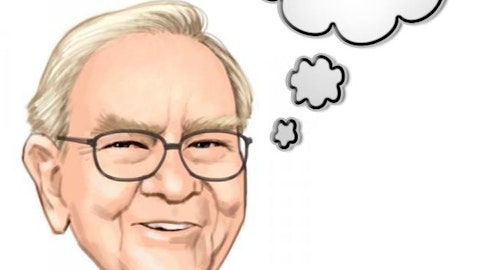The challenge also was then around kind of the business mix as it relates to on the asset side and mortgages of the increased competition there pushes margins down. So that — we do expect that based on our deposit franchise, we will continue to see NIM accretion, how much that gets back a bit related to some of those other factors. At the all-bank level then, when you think about the 3 primary components that we highlighted there between Canadian Banking, City National and you have within Corporate Support. What’s really sitting there is you have from an internal asset liability management, we pushed through all of the impacts associated with the margins into the business, and you’re seeing offsets there where you will have an internal flow that gets put in NII and you will have the hedge that sits in other income.
And so that’s why we tell you to really net the two of those. The reason that that’s gone so large is primarily because of the floating leg that you’ll see there. And so that’s the differential between either the funding side or the derivative side, and that’s where you’re seeing the increase on the Corporate Support side within the decom for all bank NIM.
Doug Young : So not about that, do you expect the all bank NIM to kind of go in a similar direction as the Canadian bank.
Nadine Ahn : Excluding trading, yes, both contributable. We commented on City National and Canadian Banking, excluding that noise, yes.
Operator: The next question is from Sohrab Movahedi from BMO Capital Markets.
Sohrab Movahedi: Hopefully, 2 quick questions. One for Derek. I mean, I think there was mention of some sort of record-breaking quarter for some parts of your business. Can you just give us some a sense of how you see the business developing over the next 2 to 4 quarters maybe?
Derek Neldner : Sure. Thanks, Sohrab. Yes, for Q4, just to touch on it, it was a record revenue quarter for Q4 and was a record revenue year for ’23 overall. So obviously, we’re very pleased with the results I think, reflects headway we’ve been making on a number of the strategic initiatives we’ve undertaken. As we look forward to 2024, right now, I would say we’re cautiously optimistic on the outlook. Obviously, there still is a fair bit of uncertainty on the economy and rates and implications that may have on markets and client activity. But overall, I think we feel quite constructive in terms of the macro and then obviously, some of the specific things we’re driving to grow the business. So if I just step through that a little bit, Global Markets has obviously had a pretty constructive environment in the last 2 years given some of the volatility.
We think as the economy and markets stabilize a little bit, that may normalize a bit. But overall, I think we expect a reasonably constructive environment for the sales and trading business next year. Investment Banking has obviously had a difficult 2 years with fee pools down 30% plus each of 2022 and 2023. I think, again, as we see a little greater confidence in the outlook over the next few years. We’re starting to see corporate and sponsor activity pick up. That’s reflected in obviously a good quarter you saw and improving visibility on our backlog. So I think we feel good about the outlook for the Investment Banking franchise next year. And then demand for credit among our corporate clients continues to be quite steady. And so we envision, I think, a good solid year next year for our lending franchises.
One headwind has obviously been an elevated cost of funding with rates potentially peaking spreads peaking, we would be hopeful that, that pressure has abated through ’24 and more into ’25, we maybe start to see that settle down a bit. So that gives you a bit of an overview, reasonably constructive overall in the businesses. And importantly, we feel confident in our strategy and a number of the investments we’ve been making to underpin that. You’ve seen that evidenced in market share gains this year across both our markets business and Investment Banking. And we feel good we can continue that momentum into next year.
Sohrab Movahedi : Okay. That’s very helpful. And then just a quick one for Neil. They’ve got a target of 1% to 2% positive operating leverage for you next year. Do you think that’s going to be more on the revenue side or on the expense side? Or which one do you think will make it more challenging for you? The revenues are the expenses to deliver on that?
Neil McLaughlin : Thanks for the question. I mean, I think there’s — obviously, we can control the expense. We have more volatility in the revenue line. So you’ve seen us take the expenses on a downward trajectory. That will definitely continue. But that’s one of the reasons that we really focus on operating leverage because there is that type of uncertainty. So we’ll manage the operating leverage through the year, and we’ve made some hold-some levers, particularly around FTE, you heard Dave’s comments earlier in the year, and that type of focus will continue.
Operator: The next question is from Mario Mendonca from TD Securities.
Mario Mendonca : First for Graeme, in your opening comments, you said something about performing loan provisions in the first few — first 3 quarters of ’24. But I didn’t quite follow what were you suggesting there?





